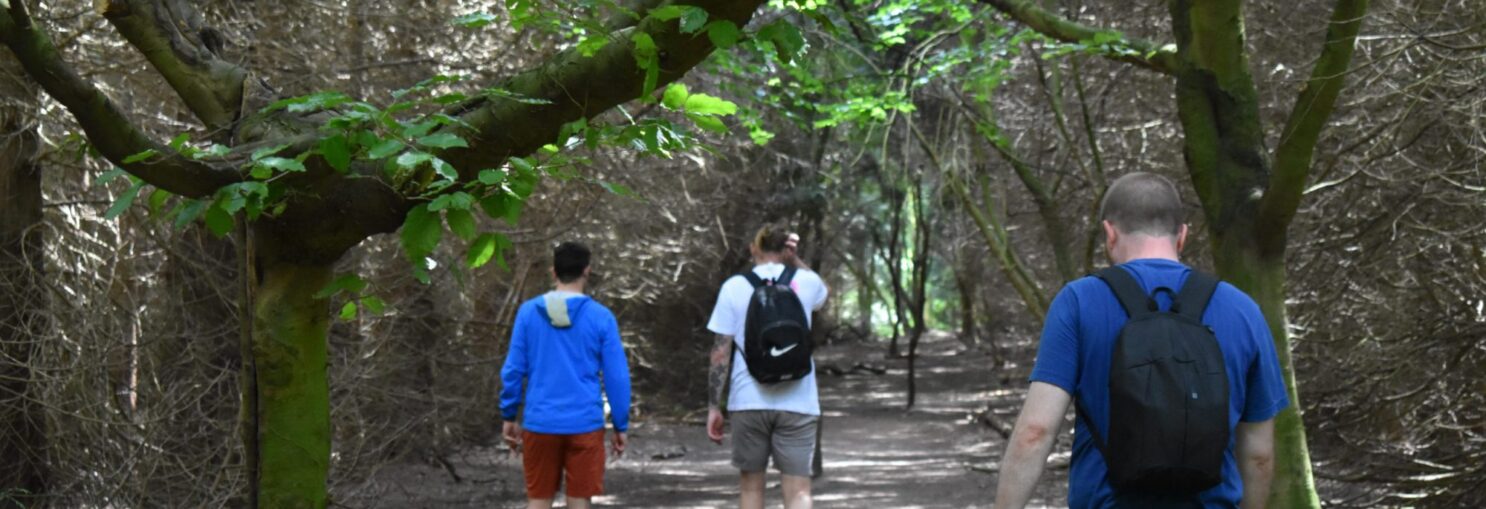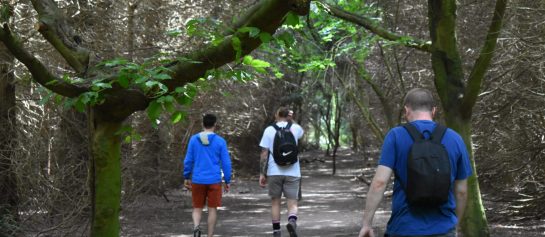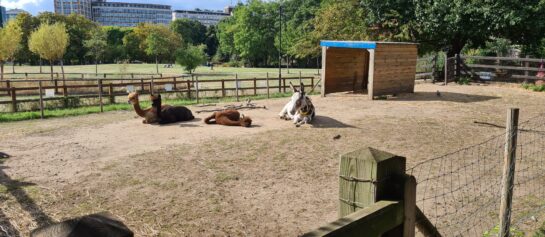Many would argue that mental health was an issue for society prior to covid and lockdown. But, the effects of being cut-off from our nearest and dearest certainly seems to be having an adverse impact on people. The Office of National Statistics has released numbers highlighting that as much as 69% of the population in the UK are feeling very worried about the effect covid-19 is having on their life.
The Evening Standard recently reported that mental health charity Mind is warning that the worst is yet to come. Our collective mental health, post-pandemic should be top of the list of priorities when we’re ‘back on our feet’.
But, wherever there’s adversity, humans often find the means to alleviate the problem. We are an innovative bunch and, through my experience and seeing the experience of others, there seems to be some great ways of cultivating a positive mental attitude. As you might imagine from the Agriculture Vulture, nature and the environment have proven to be the salvation in these hard times.
I used my time on furlough (before joining the amazing Vauxhall City Farm) for a number of reasons but my favourite thing has been discovering green spaces around me – both near and far. Anyone who follows my blog will have read about my escapades at the London Wetland Centre, Oxleas Wood, Richmond Park, and, most recently a particular trail through the Chilterns. It’s allowed me to indulge an element of my personality that usually takes a backseat to work or other considerations; It’s allowed me to reconnect with my love of birding; it’s fuelled the content for my writing; it’s reignited my support for wildlife organisations; it’s helped my physical health too. My daily distance travelled has upped from an average of 3.9km/day to 9.4km/day and, barring a small injury to my right foot, this can only be positive for my body. This, in turn, feeds into a much better platform to look after my mind.
I have always found that discovering nature brings an unexpected amount of happiness. I’ve managed to see species of birds that I had never even gotten close to before.
Last week I saw my very first peregrine falcon and even I was surprised by the elation that I felt. Until you see certain species in the wild there is a sense of disbelief that they even exist – silly I know. But, when I spotted it, then realised the shape, size and behaviour meant it was something quite different and then positively identified the species, a chain-reaction started within me. Firstly, there was the elation of seeing the world’s fastest creature, an appreciation of its finely-evolved physicality. Then, it dawned on me that it’s a species I’ve never seen before, and a sense of wonderment sets in. And finally, a calming wave of appreciation figuratively encases the whole experience, achievement, and acceptance – a feeling of oneness with the environment. All of this happens in the space of about 5 seconds but slow-releases throughout the days, weeks, months that you continue to indulge in nature around you. It accumulates too.
The more you go out into nature, the more you notice, the more you spot, the more the above feelings intensify – it can become addictive. And it spreads! I have been going out with a close friend of mine and I’ve persuaded him to join the birding cause. It was an easy sell, as I think he was already into nature and the environment. I was perhaps just the catalyst in this situation. Nonetheless, the positivity is spreading, as is the connection to the environment. He’s already written to his local council to ask if a local area can be left to rewild, so that it can improve the number of pollinators and birds that visit the area and create a more robust eco-system. A perfect example of positivity breeding positivity. Good vibes tend to snowball and improve things for everyone. They are also essential in such times when negativity can be all too easy to fall into.
It’s not just my colloquial experience that gives credence to the link between nature and positive mental health. There’s a great deal of science behind it too. UCL and the University of Sheffield have touched upon this in the UK, as have many universities in Scandanavia, the US, and Canada. It all seems to come down to the ideal of connectedness – being anchored to something. Human beings tend to view the world in relation to other things. Their purpose and direction defined by how they positively impact other things and beings. Nature provides that on a huge scale. Anyone who ventures out into the UK’s numerous green spaces is instantly struck by how interconnected everything is. People are fascinated by the abundance of plant-life, insects, birds, everything. It is so plain to see how you are a part of something much larger, much grander, much more beautiful. You’re not alone. You’re in this life with a cornucopia of different life forms and you can happily experience them, so close to your own home. You can go further and support them through respective organisations or simply by acting responsibly whilst in the great outdoors. You belong to the natural world and it’s just there for you to enjoy and be a part of. No fees, no memberships required, you simply get yourself to the spot and walk into it. You can do it by yourself or with friends, you can enjoy it on whatever level you want. You can just sit in it, you can explore it, you can go on intrepid expeditions to intensely connect with it – the way you enjoy it is completely up to you.
Nature is exceptionally inclusive and is the gift that keeps on giving. It offers up great beauty and fills your lungs with clean air, that cleanses the body and mind. And you don’t have to just take my word for it. There are a host of others working in this space.
For those who are keen birders, like me, Joe Harkness has developed his book, Bird Therapy, that outlines his personal journey through depression and having nature reframe his thinking, bringing him back from the brink.
Yellow Wellies, supports those in the agriculture industry, who suffer an uncommonly large amount of mental health issues. Farmers would argue that they have been dealing with isolation long before coronavirus, but orgs such as YW supply that sense of connection to people and the environment to improve the way people live their day-to-day lives.
The Instagram page, The Naked Farmer, often raises the concepts of wellbeing and its relation to the environment and is certainly one to check out for an alternative approach to mental health – namely removing your clothes. It’s got a huge emphasis on supporting each other and harks back to that concept of connection and its impact on mindset.
The world is a challenging place, to say the least. If you then layer on a global pandemic that cuts off the majority of your ties to ‘the real world’, things become a great deal harder. The key thing to remember is that there are things out there that can help. Even if they are just little things, doing them regularly can alleviate a lot of stress, anxiety, worry, and depression.
My advice is to get into nature but I do realise that it is a good fit for me, for you it could be something different. However, I feel that nature has something for everyone. Its diversity in people, plants, and animals means you can often find your place. If nothing else, using nature as an excuse to go out and think about nothing – simply appreciate your surroundings – is a great starting point to reconnecting with the environment and yourself. So often, it’s the thoughts we have when not thinking that have the most profound impact on us. And, if there’s anywhere that can clear your mind of the stresses of work, lockdown, and political/pandemic news, it’s in the natural environment around you. Find a spot near you today and just walk into it, you’ll soon feel the positivity rising and, as they say, it’s all downhill from there.





